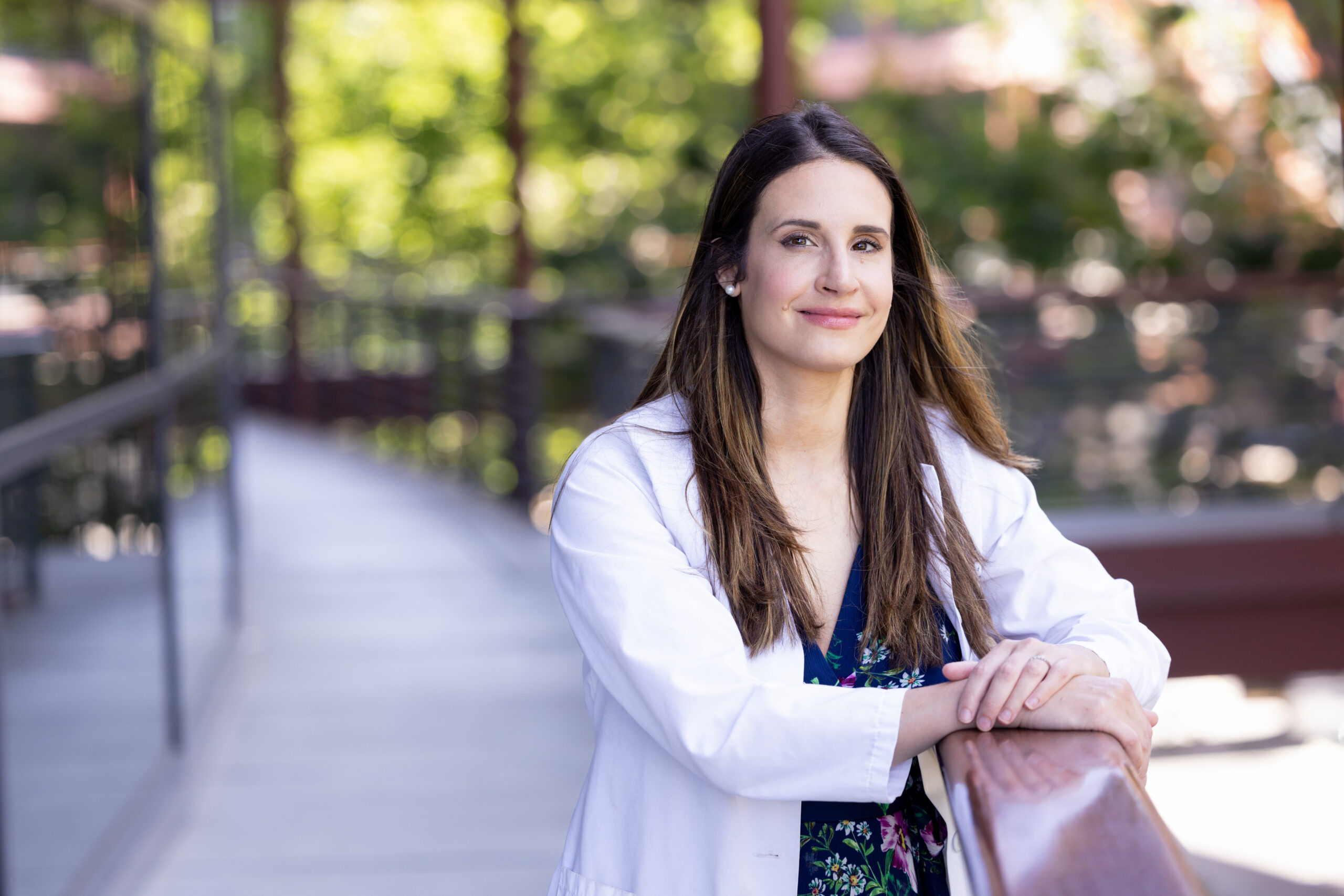
Expanding Horizons: Lauren Eggert’s Mission to Transform Pulmonary Care in the East Bay
#Interventions
Lauren Eggert, MD, who is working to expand the reach of Stanford’s chest clinic, to reach pulmonary patients throughout the East Bay
Stanford Medicine has grown substantially since 2017, but there still aren’t nearly enough experts and clinics to get patients with chronic obstructive pulmonary disease (COPD) and asthma the care they need.
Lauren Eggert, MD, had no specific fascination with pulmonary medicine in medical school until she started working with a mentor during her internal medicine residency. That mentor, she says, was a “fantastic clinician in the intensive care unit (ICU) and pulmonary clinic,” adding, “I wanted to be just like them.”
Eggert joined Stanford Medicine’s Division of Pulmonary, Allergy and Critical Care Medicine as a fellow in 2017 to follow in her mentor’s footsteps. She’s now a clinical assistant professor of pulmonary, allergy, and critical care medicine.
“A lot of patients of mine come all the way from San Luis Obispo, from Nevada, from Sacramento, from far out in the Central Valley,” she says.
“Finding alternative sites where we can have more space, have more providers, and also reach different communities has been an important goal of the chest clinic and pulmonary at Stanford.”
Resources and Clinical Trials for Asthma
“One of the things we are working on is building a stronger asthma program through the multidisciplinary allergy clinic,” says Eggert. One day a week, Eggert works at the allergy clinic to help patients with allergic asthma. The clinic has access to advanced tools such as fractional excretion of nitric oxide, which helps clinicians measure lung inflammation. The team schedules monthly meetings to discuss how to improve the care of complex patients.
She’s also teamed up with researchers at the Asian American Research Center at Stanford to study asthma, allergies, and other pulmonary conditions in Asian populations.
“We’ve published work on the importance of disaggregating Asian subgroups. For example, outcomes can be different between people who are Chinese and those who are Filipino.”
One of Eggert’s most recent studies showed that Filipino Americans get less sleep and have more difficulty falling asleep than other Asian Americans, which she points out could influence many other health outcomes.
Additionally, the chest clinic is planning to open an outreach clinic in Oakland’s Chinatown, with the future addition of allergists on staff to better support the needs of patients who live there. Several of the newest treatments for asthma and COPD are injections that require patients to visit the clinic. “We’re trying to build ways to get care into their neighborhoods, so they don’t have to come to Palo Alto from the East Bay, which is quite a hardship,” Eggert says.
“Finding alternative sites where we can have more space, have more providers, and also reach different communities has been an important goal of the chest clinic and pulmonary at Stanford.”
– Lauren Eggert, MD
Keeping COPD Patients Out of the Hospital
Eggert is working on increasing access to pulmonary rehabilitation – an eight- to 12-week program that combines education, breathing exercises, endurance exercises, strength work, and more – that is well-known to improve quality of life for people with COPD and other lung conditions. It also helps keep patients out of the hospital. “It’s just being grossly underutilized, and one of the biggest factors is lack of access,” says Eggert.
Only about 5% of patients who could benefit from pulmonary rehabilitation use it. In rural areas, that number is even lower. It’s closer to 3% of patients who are likely to benefit. Stanford Medicine is partnering with an innovative virtual rehabilitation program to allow patients to work through the program without having to travel.
Eggert, her team, and her collaborators throughout Stanford Medicine are reaching new frontiers, building new spaces, making the most of telehealth technologies, and providing better care for more pulmonary patients than ever before.
